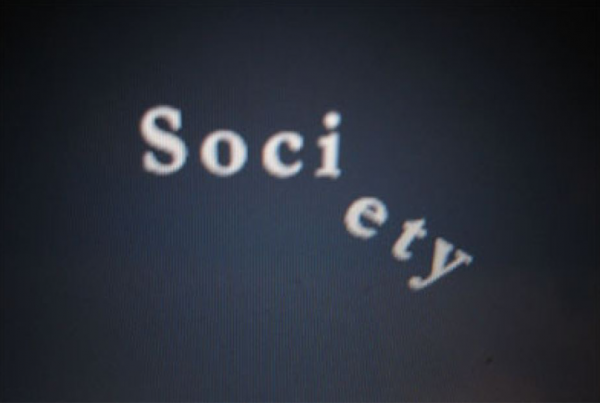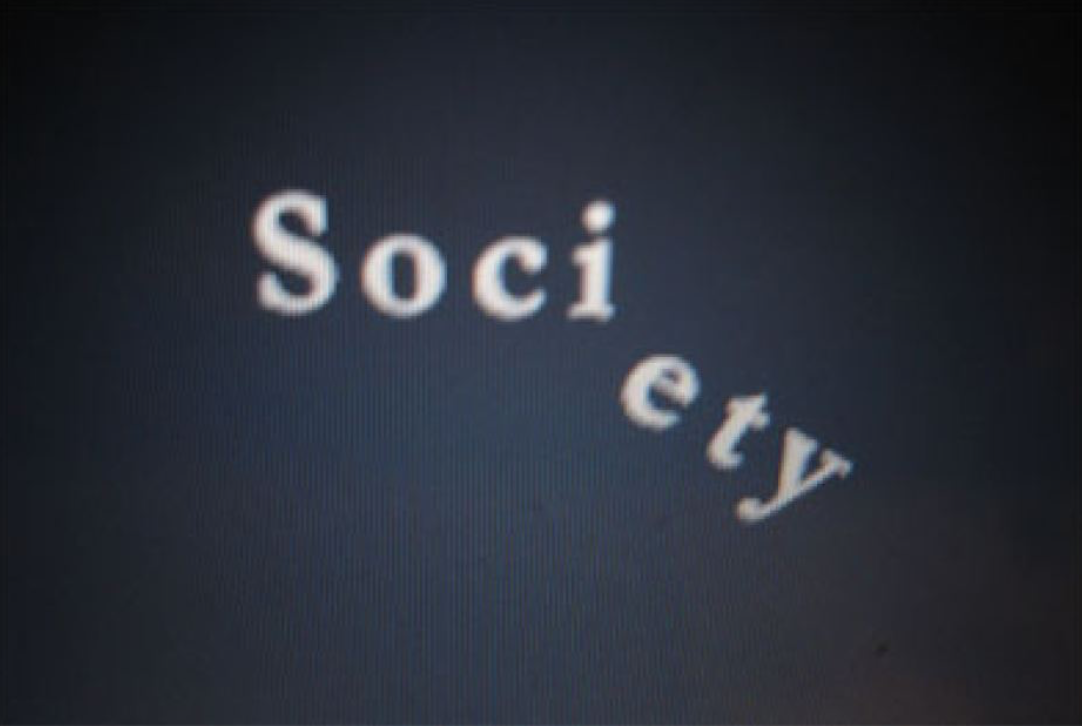
A few years ago I wrote an article about a ride on the 486 bus from Symonds Street to Prestons Road (you know, in Otara), and the changing population that inhabited the bus as it moved south. I still remember that ride. I sat by a sign taped onto the window advertising loans for people who need to ‘go to the Islands’, no doubt forcing poor Pasifika families into the slavery of extortionate loan repayments mandated by extremely poor legislative controls on that industry.
I was also part of a research project noting how schools bent and distorted their enrolment zones to include the wealthier areas around them and exclude the poorer, thus gaming the system. That study concentrated in the Eastern suburbs, where very poor areas (e.g. Glen Innes) lie side by side with great wealth. And ne’er the twain shall meet, as it were.
So it was with interest that I found myself on a train from Britomart to Glen Innes station, visiting some people at the University of Auckland’s Tamaki campus. I like public transport, and generally prefer it to taxis. Also, at $5.50, you cannot beat the value.
The ride is great, along the waterfront with better views than one can get from cars. Glen Innes station was clean and well-populated at first look. I couldn’t see an exit so I followed an older Chinese bloke. He started heading down a slope into what looked like Utter Darkness. I asked him if this was the way out, and he nodded. Would he show me? Yes, he would (all of this without a word – who needs language to make themselves understood?)
So we walked down the slope into the underpass. Those of you who remember the pass of Cirith Ungol in the Lord of the Rings will get the point. It was dark and very smelly, and I just knew that Shelob, the giant spider that inhabits the way, was lurking in the shadows.
Yes, there was lighting, but even in the daylight it barely penetrated the gloom. I stuck close to my little Chinese guide, and was pleased to get out into the sunshine (thanking him wordlessly, nod and nod). The town centre of Glen Innes. And what a difference from the shiny town centre of Auckland city that I had just left. In what follows, I want to make it clear that my observations are about differences and inequalities. This is not a discourse of derision.
The first sight of Glen Innes is a shock, coming out of the ten minute ride from Auckland Central. I spend quite a lot of time in Manukau and that area looks wealthy compared to Glen Innes. The first thing that struck me (as my heartbeat calms down after surviving the spider’s lair) was the smoking. In particular, the first three people I saw were sitting on a handy little wall puffing away. They were very helpful in telling me where I could find the University campus (puff, puff).
The second view showed a taxi rank. Auckland has a great inequality in taxi companies, from the large and affluent to the mundane to the old junker companies, which are cheap but not very posh. The three taxis on the rank were of the latter type. Most of the shops were of the thrift shop, or discount, varieties. One ‘bakery’ I looked into was not full of the delicate Parisian pastries of the city, but of fried foods in warming stations around the room. The other bakery looked similar.
There was a small independent supermarket, where I ventured for some water, with aisles of quite interesting ethnic foods. Lots of Pasifika things, too, like varieties of Taro, and red onions at $2.49 per kilo (they are at least double that in Christchurch) (I did not load up my bag as I did not want to arrive at my appointment smelling of onions) (though I was tempted).
There was one large shiny building and that was Work and Income, with the obligatory security guard outside as an official reminder that THEY are scared of US. And quite rightly so, too, given the propensity of that agency to judge and control lives. Opposite that was the Tamaki regeneration project, which works with youth, employment and various ethnic communities to make a difference. There was, inevitably, a pay day loan outfit in prominent premises on the street. Maccas, KFC, Pizza Hut (ubiquitous).
Such contrasts. The Remuera golf club is less than a kilometre down the road but here we are in a suburb showing unmistakeable signs of poverty (but none that I could see of crime or disorder, although this is apparently a high crime area – perhaps the spider dunnit).
Geez. Fix that underpass. Good LED lighting, some signage so people know where to go. For a start. Then fix inequality and poverty (but we won’t go there today). The people appeared lovely. Fix the system!
Dr Liz Gordon began her working life as a university lecturer at Massey and the Canterbury universities. She spent six years as an Alliance MP, before starting her own research company, Pukeko Research. Her work is in the fields of justice, law, education and sociology (poverty and inequality). She is the president of Pillars, a charity that works for the children of prisoners, a prison volunteer, and is on the board of several other organisations. Her mission is to see New Zealand freed from the shackles of neo-liberalism before she dies (hopefully well before!).






well done as usual Dr Liz i read everything you write with great interest, you are a far more educated and insightful person than I, id like to thank you on behalf of the poor for your entertaining commentary and non prejudicial insights on Auckland life.
Pretty lowbrow for someone with a PHD
Have you not heard?
The neoliberals are ‘fixing’ poverty, by evicting the poor from state houses in Glenn Innes and other areas of Auckland and giving the land away to companies to rebuild at $800k+.
It is called Kiwibuild.
Under Labour the PPP’s or SOE’s or whatever acronym the accountants come up with, will rebuild the state houses but without the sections which they sell off to richer folks, and those tenants may be allowed to come back generally years later after they have socially cleaned up the areas as the person on $800k+ doesn’t want to see somebody on welfare next to them…
To make sure the 2/3 of the former state housing land sell as high as possible they have also allowed permanent residents to buy them so anyone with 2 years in the country under their belt and plenty of money competes with Kiwis on Kiwi wages (who is going to win that battle, I wonder). Under National they were doing the same thing so quite frankly I can’t really see much difference between Labour and National housing strategies – social cleansing is social cleansing.
Certainly Auckland Transport or the council should upgrade the safety aspects of the underpass but the idea of gentrification, isn’t that just a more socially acceptable name for social cleansing the way NZ is carrying it out with loud approval by both the neoliberals and woke lefties celebrating current citizens becoming not even tenants in their own county but “oh the diversity” so colourful to have a rainbow of the world’s richer middle class or even rich from all around the globe, settling here!
The woke left, have probably not got their heads around who is the minorities… maybe 750,000 Maori in the world left, and 2.5 million Pakeha versus other ethnicities worldwide… the identity politic lefties do not seem to be able to see ethnic minorities within a bigger picture under globalism… and certainly blind to power and wealth distribution that once achieved will perhaps make their dreams of a Chinese or Indian controlled Pacific a reality within a lifetime, neither of which governments are noted for their welfare states, human rights records, womens rights, environmental rights or equality. What a gamble!
NZ could have been a place of immigration for dissidents of those countries (but we can’t afford refugees or people who speak out about their government, that might effect trade!).
Globalism dictates that trade and laize faire economics is more important than giving citizens extra rights or worrying about democracy dissidents. That’s protectionism!!! A dirty word from the left to the right these days.
Also have to wonder why the people who were born here can’t vote if they are in prison but you can buy citizenship without ever even living here (Peter Thiel) or get voting rights within 2 years with permanent residency.
You’d think that if our government cared about democracy you would have to show some commitment by living in NZ for at least a decade before being allowed to vote and show some commitment if you were not born here before having a say on what people who do live here have as their government, but nope, once you get permanent residency you can come and go as you please and have more rights to democracy than some citizens born here deemed less desirable who can’t necessarily live anywhere else if they don’t have dual nationality.(And you have even less options once you get that criminal conviction).
If somebody wants to worry about poverty in Glenn Innes might be time to have a look at the bigger picture of what is driving poverty, who is going to be living in our cities in the future?
The way things are going it will not be many of the current residents of Glenn Innes. (Who will have probably experienced a huge rates increases as their land and houses go up, which will also be passed on into higher private rental’s and Kiwibuild is evicting the state house tenants while they build for an unspecified amount of time).
Comments are closed.